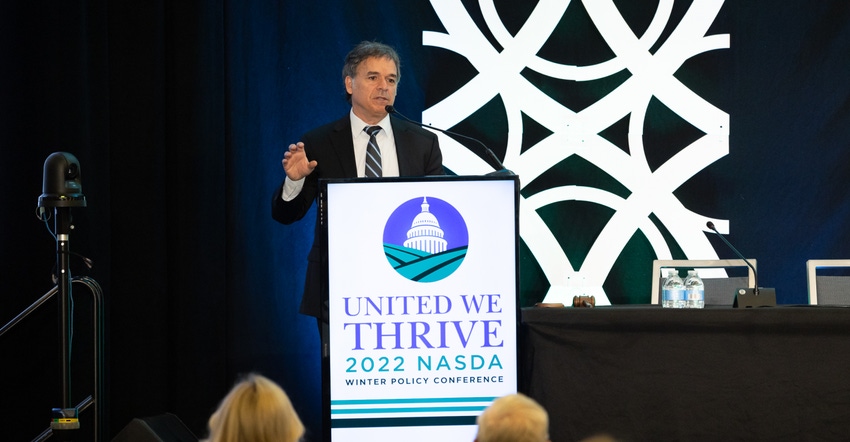
“Food once brought our nation together. Now food divides us.”
The words were shared by Frank Yiannas, deputy commissioner for food policy and response at the Food and Drug Administration, in an address to the National Association of State Departments of Agriculture’s Winter Policy Conference. Yiannas says the theme of this year’s conference is quite fitting: “United We Thrive.”
Yiannas shares what I have thought many times. Food once rallied people together, whether it was a hot dog at a baseball game or that special holiday meal. Over the last few years, Yiannas explains he’s seen a troubling trend dividing people on food, rather than bringing them together.
There’s the local vs. global debate. He supports local, but he also enjoys coffee. And so far, coffee is not grown locally. Or the organic vs. conventional. Add in the natural vs. processed debate. As much as he loves natural, he shares my belief that bread and wine, both processed, also can and should be enjoyed.
“I don’t think food should divide us, but anything food should unite us,” Yiannas says. “It doesn’t matter if there are differences in ideas or approaches. The reality is we have to work together.”
Yiannas rightly notes that the stakes are too high if one production practice and food process becomes forced over another. “Never before in human history has the responsibility to provide safe and affordable food to so many rested on the shoulders of so few.”
I couldn’t agree more.
I grew up enjoying many meals around my family dinner table. My mom often showed her love through the dinner plate. Today, this is still one of my most cherished parts of the day when my family can all enjoy food together. I show my love to my kids by taking time to make food that nourishes, but also blesses with my time and effort.
It doesn’t matter if some of the labels say organic or natural. Or that the “local” beef in my freezer was purchased from a fellow 4-Her.
What matters is choice. And having the choice to purchase food that is affordable and safe. By being willing to pay a premium to support the beef produced nearby, or being confident in affordable, healthy foods.
Just this week Purdue University’s Center for Food Demand Analysis and Sustainability released its inaugural Consumer Food Insights Report which surveyed 1,200 consumers to identify trends and changes in consumer food purchases and preferences.
Telling in that report includes the statistic that 32% of respondents are waiting for their next paycheck to buy groceries again, and 16% of respondents face food insecurity.
What attributes do Americans most value when purchasing food? Taste at 25%, followed by affordability at 22% and nutrition at 22%. Respondents least valued environmental impact and social responsibility, which similarly tracks with the relatively low environment and social scores on the Sustainable Food Purchasing Index which places it on a score of 0 to 11.
At the end of the day, we need food that tastes good, is economical and still provides good nutrition. With all the noise in the food divide culture today, that continues to be lost. It’s time to step back from the raging food war, and go back to allowing food to unite us.
About the Author(s)
You May Also Like






